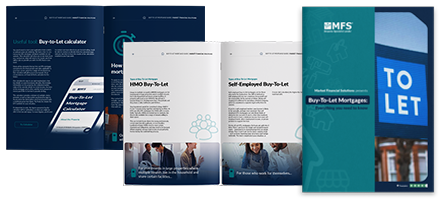Disclaimer
MFS are a bridging loan and buy-to-let mortgage provider, not financial advisors. Therefore, Investors are encouraged to seek professional advice.
The information in this content is correct at time of writing.

The property industry, indeed the entire economic ecosystem, is making an effort to go green. Initiatives are well underway to make the UK as environmentally friendly as possible. In the property world, these efforts are defined by EPC legislative proposals.
Currently, landlords can’t let properties if they have an EPC rating below E, while sellers may struggle to find a buyer if they have a bad rating.
So you’re unsure of how EPC ratings affect mortgages, this blog could provide some clarity.
Source: Mortgage Introducer, House Beautiful
How do EPC ratings affect mortgages?
As environmental pressure ramps up, it may prove increasingly difficult to attain mortgages for properties with low EPC ratings. While minimum EPC ratings for mortgages may vary between lenders, there may only be very restrictive terms for those with low ratings.
Where they are offered, there will likely be an expectation that improvement will be made – imminently. In some cases, applications may be rejected outright.
Currently, in England and Wales, the median energy efficiency rating is D, with scores of 67 and 65 respectively.
We’re already seeing evidence for greener preferences on the high-street. Suffolk Building Society recently became the latest mainstream name to offer a buy-to-let product specifically targeted at landlords with good EPC ratings.
The focus on a greener future has been so impactful, we’ve even seen lenders launch entirely new ranges. In recent years, lenders started offering specific EPC mortgages as well as green mortgages. These are designed to reward those purchasing energy efficient homes, or making changes to their existing ones.
This manifests itself in two different ways. If you’re buying a property with a high EPC rating, say A or B, some lenders will offer you cashback or a better rate on the mortgage.
If you make improvements to your existing home, such as installing solar panels or upgrading your heating system, you may benefit from a discounted interest rate, or be offered cashback on any money borrowed to upgrade the property.
Evidently, there are incentives out there. But property investors may be at risk of missing out on them. There are both positive and negative answers to the question of does an EPC rating affect mortgage outcomes.
Source: HSBC, ONS, Landlord Today, The Times, Money Saving Expert

But, opportunity abounds for those who act
Those with properties with less-than-perfect EPC scores can take action to improve their ratings. What’s more, by doing so, they could attract higher rental yields and returns.
Demand for energy-efficient homes just keeps on rising. In fact, demand is so high that some buyers would be willing to pay up to a 20% premium for low-carbon homes. Meanwhile, private renters would pay up to 13% more rent for an energy-efficient property.
EPC ratings aren’t set in stone. By investing in some upgrades, you could rise through the ranks. These can range from simple tweaks, to more substantial projects.
You could start with something as simple as installing low energy lighting. Replacing halogen lightbulbs with energy efficient LEDs is an easy swap out.
Replacing single glazed windows with double glazed options is another obvious solution. Not only will these changes likely result in a higher EPC score, but they could also cut your, or your tenants, ongoing energy bills.
There are also the big upgrades. Installing insulation – be it in the walls, under the floors, or in the loft – should substantially improve your property’s energy efficiency. What’s more, replacing old boilers, installing solar panels, and upgrading your heating controls should all have the same effect.
Source: IFA Magazine, Commercial Trust
How to get finance for EPC rating improvements
We understand though, that these upgrades can take time to see through to completion. And of course, the initial costs could be very high. It can be daunting to plan this all out.
But, this is where specialist finance can help. We have products specifically designed with these complications in mind. We know you’re facing a rapid market which requires constant tweaking.
That’s why we prioritise adaptability and speed. Our funding could be with you in as little as 3 days. You could get the ball rolling today.
It’s true, EPC ratings affect mortgages, but we can help you prepare. If you want to get ahead of any environmental challenges, and reap the rewards on the other side, we’re here for you.
The Complete Guide to
Buy-to-Let Mortgages
Everything you need to know
- Fundamentals
- Different mortgage types
- Useful tools
- Industry stats & more




